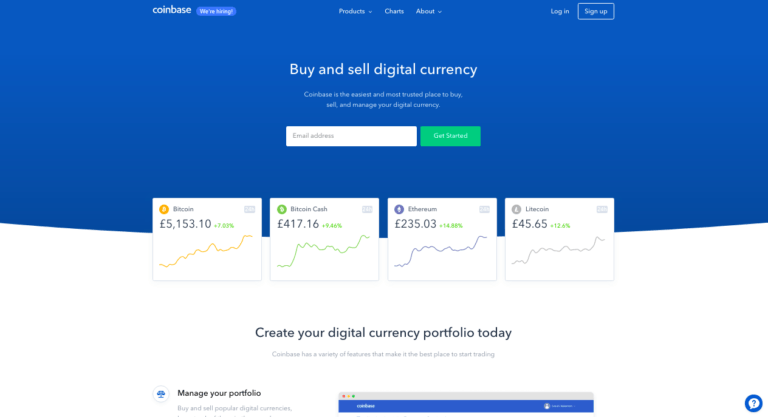On Wednesday (15 August 2018), Coinbase announced that it had acquired a small San Francisco-based startup called Distributed Systems, with the startup’s five employees joining Coinbase’s Identity team.
The CEO of Distributed Systems, Nikhil Srinivasan, took to Twitter on 25 June 2018 to explain through a series of tweets what his startup was working on:
1/ We started @_dsys with a vision to change the status quo: to make it simple for anyone to create, control, and use a universal access financial system. We believe an open standard for self-sovereign identity is the first step toward that vision.
— 𝙉𝙄𝙆𝙃𝙄𝙇 (@nvs) June 25, 2018
2/ We’re building an open source system that will enable user-controlled identities across the web. Users can prove ownership based on control of a private key linked to the known identifier. These identities can represent any entity incl. people, services, companies, governments
— 𝙉𝙄𝙆𝙃𝙄𝙇 (@nvs) June 25, 2018
3/ Blockchains invert current user data models: rather than the network storing your data & holding your keys, the network has a financial incentive to store your data while granting users control & access.
— 𝙉𝙄𝙆𝙃𝙄𝙇 (@nvs) June 25, 2018
4/ An important constraint when designing global identity systems is @zooko’s triangle, a trilemma of three properties: security, decentralization, and human-meaningful (pick two). Addresses can be secure and decentralized, but at the cost of being human readable and friendly. pic.twitter.com/9GCo2G2Os1
— 𝙉𝙄𝙆𝙃𝙄𝙇 (@nvs) June 25, 2018
5/ An argument can be made that human-friendliness should be considered an aspect of security, as phishing and malicious spoofing attacks become increasingly well-designed. Although a number of projects are building solutions to this problem, none are ready for mass-adoption.
— 𝙉𝙄𝙆𝙃𝙄𝙇 (@nvs) June 25, 2018
6/ Just as DNS made it possible for users to perform IP lookups with human-readable names, ENS (Ethereum Name Service) makes it possible to design user experiences that easy, friendly, and accessible.
— 𝙉𝙄𝙆𝙃𝙄𝙇 (@nvs) June 25, 2018
7/ For example, if you wanted to send me ether or a token, you could send it to nikhil.distributedsystems.eth.
You can imagine every web experiences offering an authentication flow consistent with email/password but designed to keep users in control.
— 𝙉𝙄𝙆𝙃𝙄𝙇 (@nvs) June 25, 2018
8/ What if you lose control of your private key?
To improve security, it makes sense to require multi-factor approval from more than one device for some (or all) transactions.
— 𝙉𝙄𝙆𝙃𝙄𝙇 (@nvs) June 25, 2018
9/ Similar to current multi-factor authentication flows, we believe a multi-sig identity system is critical to non-custodial identity services.
By linking multiple keys to a proxy contact on-chain, we can enable seamless key management and recovery while maintaining control. pic.twitter.com/15JjLoGQ3Z
— 𝙉𝙄𝙆𝙃𝙄𝙇 (@nvs) June 25, 2018
This is how Alex Kern, the CTO of Distributed Systems announced on Twitter the news about the acquisition by Coinbase:
Excited to announce that @_dsys is joining @coinbase to bring decentralized identity to a broader audience. So proud of the team and incredibly thankful to those who helped us along the way.
Read about the acquisition on Wired: https://t.co/jD22LeJvII
Time to BUIDL! 🚧🆔🙌 https://t.co/CvAgm6osPB
— Alex Kern (@kernio) August 15, 2018
On his post on the Coinbase blog, B Byrne, the product manager for Coinbase Identity, used the following example to explain the motivation for decentralized online identity solutions:
“Think about how this applies to something like a Social Security number. Every time you want to prove who you are with your SSN, you need to give away a copy of it. That copy has exactly the same power as the original, so when there’s a data breach with copies of your data it puts your identity at risk. A decentralized identity will let you prove that you own an identity, or that you have a relationship with the Social Security Administration, without making a copy of that identity. If you stretch your imagination a little further, you can imagine this applying to your photos, social media posts, and maybe one day your passport too.”
He then explained that Coinbase was going to explore how and where this technology should be used:
“Blockchain technology that powers cryptocurrencies offers a new way to let us all be “verified” everywhere we go on the internet, feeling safer about our interactions with others and opening the door to the experiences that require trust. We’ll need to be deliberate about how and where we apply this technology. We’re going to have new questions to answer about anonymity, privacy, and how permanent the different pieces of our identity should be. But ultimately, decentralizing online identities will transform our relationship with technology.”
Featured Image Credit: Image via Coinbase









